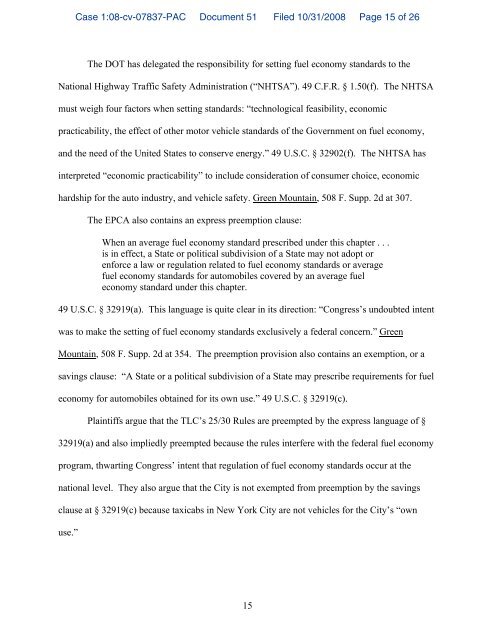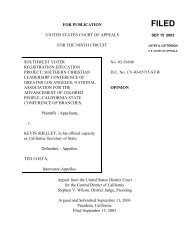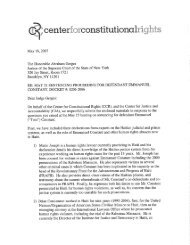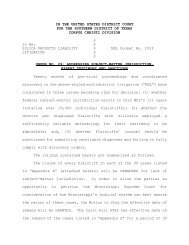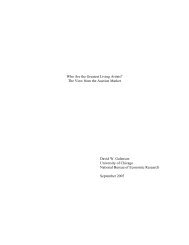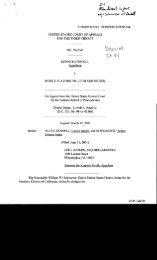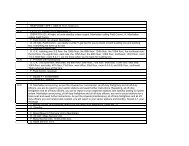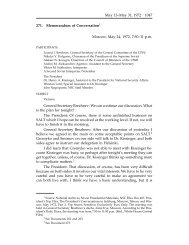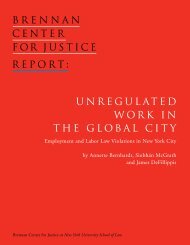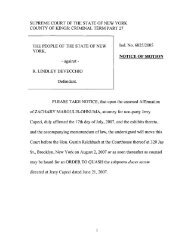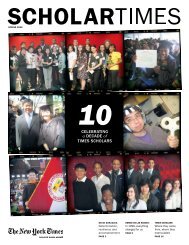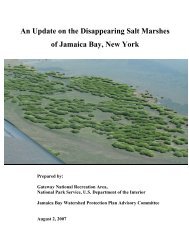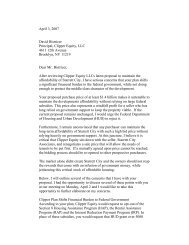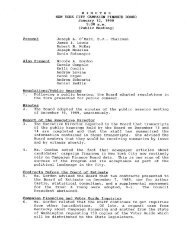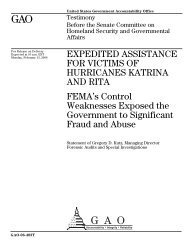UNITED STATES DISTRICT COURT SOUTHERN DISTRICT OF ...
UNITED STATES DISTRICT COURT SOUTHERN DISTRICT OF ...
UNITED STATES DISTRICT COURT SOUTHERN DISTRICT OF ...
You also want an ePaper? Increase the reach of your titles
YUMPU automatically turns print PDFs into web optimized ePapers that Google loves.
The DOT has delegated the responsibility for setting fuel economy standards to the<br />
National Highway Traffic Safety Administration (“NHTSA”). 49 C.F.R. § 1.50(f). The NHTSA<br />
must weigh four factors when setting standards: “technological feasibility, economic<br />
practicability, the effect of other motor vehicle standards of the Government on fuel economy,<br />
and the need of the United States to conserve energy.” 49 U.S.C. § 32902(f). The NHTSA has<br />
interpreted “economic practicability” to include consideration of consumer choice, economic<br />
hardship for the auto industry, and vehicle safety. Green Mountain, 508 F. Supp. 2d at 307.<br />
The EPCA also contains an express preemption clause:<br />
When an average fuel economy standard prescribed under this chapter . . .<br />
is in effect, a State or political subdivision of a State may not adopt or<br />
enforce a law or regulation related to fuel economy standards or average<br />
fuel economy standards for automobiles covered by an average fuel<br />
economy standard under this chapter.<br />
49 U.S.C. § 32919(a). This language is quite clear in its direction: “Congress’s undoubted intent<br />
was to make the setting of fuel economy standards exclusively a federal concern.” Green<br />
Mountain, 508 F. Supp. 2d at 354. The preemption provision also contains an exemption, or a<br />
savings clause: “A State or a political subdivision of a State may prescribe requirements for fuel<br />
economy for automobiles obtained for its own use.” 49 U.S.C. § 32919(c).<br />
Plaintiffs argue that the TLC’s 25/30 Rules are preempted by the express language of §<br />
32919(a) and also impliedly preempted because the rules interfere with the federal fuel economy<br />
program, thwarting Congress’ intent that regulation of fuel economy standards occur at the<br />
national level. They also argue that the City is not exempted from preemption by the savings<br />
clause at § 32919(c) because taxicabs in New York City are not vehicles for the City’s “own<br />
use.”<br />
Case 1:08-cv-07837-PAC Document 51 Filed 10/31/2008 Page 15 of 26<br />
15


